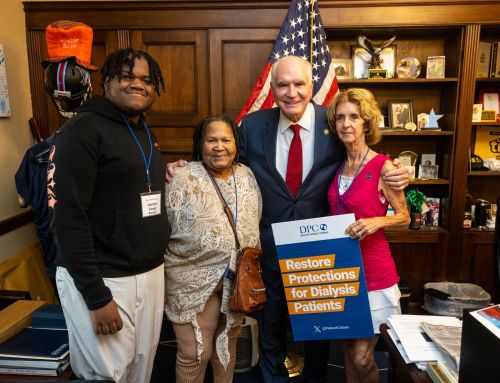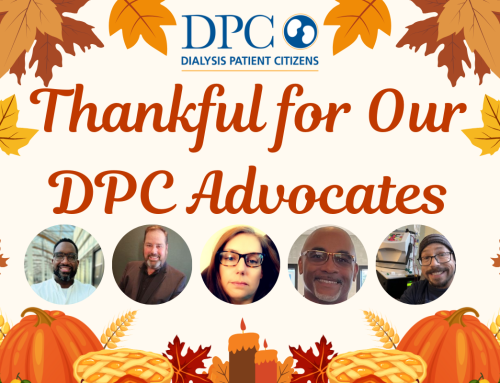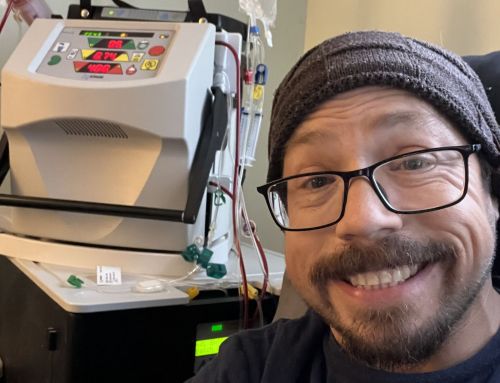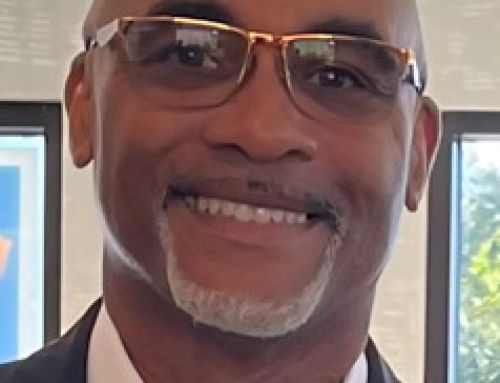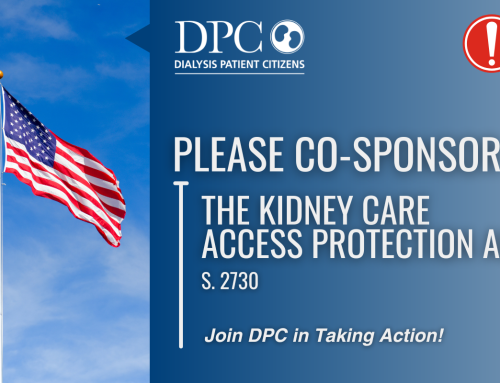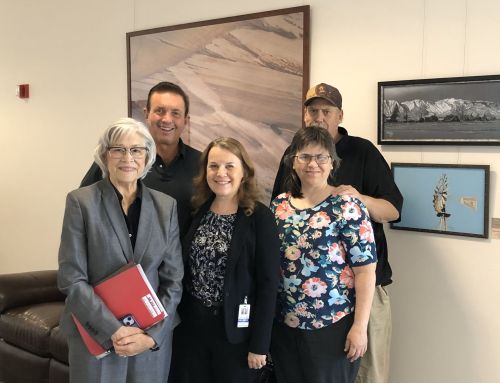July 9, 2025
Mr. Abe Sutton, Deputy Administrator
Center for Medicare & Medicaid Innovation
7500 Security Boulevard
Baltimore, MD 21244
Re: CKCC Revisions
Dear Mr. Sutton:
We are writing to protest the recent changes to the CKCC model that manifest a reduced CMMI commitment to integrated kidney care. As a former CMMI staffer, a consumer representative on the governing body of one the CKCC sites, and a longtime health policy analyst and patient advocate, I can see CMMI programs from a global perspective, and what I see is a relegation of our patient population to a second-tier focus despite it being a golden opportunity for care improvement and cost savings.
While we would not begrudge the investments CMS has made in primary care through advance payments to ACOs and add-on payments to physicians in Medical Home programs, these models cover the gamut of beneficiaries from healthy to unhealthy, and often cover geographic areas where chronic disease is less prevalent, meaning that expenditures do not effectively target the patients who need extra assistance. In contrast, kidney-specific models are laser-focused on beneficiaries who need care coordination and offer the best opportunity for delaying disease progression and avoiding costly hospitalizations.
We were dismayed to see the CMMI announcement that KCC had “resulted in losses of approximately $304 million.” First, in the past CMMI has termed additional expenditures in early model years—accurately, we believe—as “investments.” Second, it is far too soon to gauge the effectiveness of models that are only expected to show a return on investment over the long term. Now obviously as a patient advocacy organization our concern is improved outcomes, not savings to Medicare. But we find it hard to believe that delayed progression of ESRD and increased optimal starts, home dialysis, and transplants will not save money in the long run.
We must also object to the cut in payments to nephrologist participants. Large dialysis organizations are well capitalized and, for now, able to sustain losses—and have, to the tune of hundreds of millions of dollars—to pursue and perfect integrated kidney care. Nephrology practices do not have the luxury of carrying “loss leaders.” Already, I’ve seen tension between doctors and the LDO sponsor of the CKE I monitor, and this change only heightens the friction and frustration.
In sum, it seems as though CMMI leadership read a different evaluation report than we did. We urge you to reconsider your reactions to the report and give greater weight to the welfare of our patients, the long-term fiscal promise of integrated care, and the efforts of nephrologists of whom many will receive little or no financial reward from value-based care.
Thank you for your consideration of our views.
Respectfully submitted,
Jackson Williams
Vice President, Public Policy



